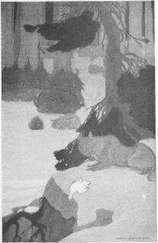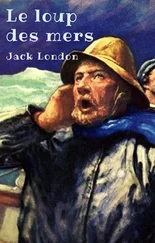Josiah Flynt - My Life
Здесь есть возможность читать онлайн «Josiah Flynt - My Life» — ознакомительный отрывок электронной книги совершенно бесплатно, а после прочтения отрывка купить полную версию. В некоторых случаях можно слушать аудио, скачать через торрент в формате fb2 и присутствует краткое содержание. Жанр: foreign_antique, foreign_prose, на английском языке. Описание произведения, (предисловие) а так же отзывы посетителей доступны на портале библиотеки ЛибКат.
- Название:My Life
- Автор:
- Жанр:
- Год:неизвестен
- ISBN:нет данных
- Рейтинг книги:5 / 5. Голосов: 1
-
Избранное:Добавить в избранное
- Отзывы:
-
Ваша оценка:
- 100
- 1
- 2
- 3
- 4
- 5
My Life: краткое содержание, описание и аннотация
Предлагаем к чтению аннотацию, описание, краткое содержание или предисловие (зависит от того, что написал сам автор книги «My Life»). Если вы не нашли необходимую информацию о книге — напишите в комментариях, мы постараемся отыскать её.
My Life — читать онлайн ознакомительный отрывок
Ниже представлен текст книги, разбитый по страницам. Система сохранения места последней прочитанной страницы, позволяет с удобством читать онлайн бесплатно книгу «My Life», без необходимости каждый раз заново искать на чём Вы остановились. Поставьте закладку, и сможете в любой момент перейти на страницу, на которой закончили чтение.
Интервал:
Закладка:
The stay in the home village was not a prolonged one, long enough, however, to ponder over the change in my life which I had so domineeringly brought about – to go back to college was out of the question, and the lawyer did not want me back. My capriciousness had exhausted his patience, and he frankly said that he washed his hands of the "case." To remain in the home village was also out of the question, according to my aunt. It was there that I had first shown my dare-devil proclivities, and in her opinion it was best to get me as far away from former village associations as possible. Besides, it was not thought wise to have me in the care of my aging grandmother, who could only incidentally keep track of me.
I wondered myself what was best to do, not caring for another runaway trip right away, and temporarily regretting very much that I had been so silly over that picayune essay. There was nothing I could think of that seemed feasible, and it was just as well that I did not lose my head over some personally cherished plan, because my resourceful aunt had already found an asylum for me. It was a farm in western Pennsylvania, owned by some distant relatives. Here I was to help care for crops and stock, and see what living in the open would do for my over-imaginative head. I was to receive my board and twenty-five dollars for the season's work, a huge sum it seemed to me when first mentioned, for I never before had possessed such wealth in actual cash. I went to work with zeal, and determination to learn all I could about farming. For a number of weeks all went well, in fact, until I made an excursion with an older friend and his fiancée, and a girl, who was the first, I believe, that I thought I really liked. I never told her name to my family, beyond calling her "Jeminy Jowles," which was as much a real name as mine was. For some reason, for years after this temporary attachment, which on my part, at least, was genuine and spontaneous, I never wanted my family to know that I was interested in any particular young lady, and as I told above, I feigned indifference to nearly all girls rather than be thought "teched" with admiration for any one or two. After our return from our outing, "Jeminy" returned to the lake to help take care of one of the villas there, as a number of girls did at that time, and are doing now, I have no doubt. "Jeminy's" departure made the village very dull for me, and the farm absolutely distasteful. So, one day, I asked my cousin to give me what he thought was my due, out of the promised twenty-five dollars. I told him that I was going to New York State to see if I could earn more money. He knew about "Jeminy" being there, and as he thought that something profitable might develop out of our friendship, I was given my money and then hied away to the New York resorts, and "Jeminy." The latter had to work so hard all day and well on into the evening that I saw very little of her, but I remember dreaming and thinking about her, when I had to wander about alone. I spent very little time in looking for a job on account of my moving, and before long I determined to look elsewhere for work. What was my chagrin, when returning on the day that the faithless "Jeminy" was about to depart for her home, to see her coming down the wharf from the boat with a former admirer, clothed in fine raiment, whom I had ousted in "Jeminy's" affections in the little farming village in Pennsylvania. I surmised him to be possessed of a fat bank-roll, judging by his independence and "only board in this sidewalk" manner of appropriating "Jeminy" for his very own, and of his giving me a very distant and critical look, which my somewhat worn clothes no doubt deserved. That was the end of my first and last real love affair. Jilted, funds very low, and no employment in sight – here was a situation worthy of any boy's best mettle. Perhaps the jilting hurt worse for the time being, but the necessity of replenishing my funds helped me to forget it somewhat. By rights I should have returned to Pennsylvania and gone to work again on my relative's farm. But there I should have seen the faithless "Jeminy," perhaps her old admirer as well, and I was in no mood for such encounters. No! I was not going to allow the village to make fun of me, even if I starved elsewhere. Besides, what chance would my old clothes have in a competitive contest with those of my rival? Obviously a very slim one. Fate was temporarily against me in that direction, I was sure, and I cast my eyes toward the north – probably because "Jeminy" and the farm meant south. The west did not attract me just then, and the east – New York constituted the greater part of the east to me in those days – seemed too complicated and full of people.
One night I "hopped" a freight train bound for Buffalo, and secluded myself among some Standard Oil Company's barrels in a box-car. In a wreck I should probably have come to grief in the midst of all that oil, but no wreck had been scheduled for that ride. My possessions consisted of what I had on my back and a few nickels in my pocket. In this fashion I hoped to impress the mighty north. That old dream about disappearing from the view of friends, making my way alone in the world, and then returning independent, successful and well-to-do, buoyed me up, even when "Jeminy's" desertion of me was most tantalizing.
I finally fell asleep on top of the mighty Trust's property, to dream of honest efforts to succeed, if not of wonderful triumphs. At heart I desired that the realization of my dream of future prosperity and fame should come through honorable toil and struggle. Indeed, during this period of youth, and even earlier, I cannot recall any disappearance or runaway trip on my part which did not presuppose a "square deal" in my account with the world; theoretically, at any rate, honesty was as dear an asset to me as to the boys who staid at home and were regular. That sitting on the mighty Trust's barrels and "hooking" a ride in a car which had been chartered and paid for by others was not a "square deal" did not occur to me. And to deliver myself of a confession on this score once and for all, I can say that I have never had any serious pricks of conscience on this account. There is no defense to offer for such obtuseness, any more than there was for my using half-fare tickets, when I had the wherewithal to buy them, until I was over seventeen. I merely report the fact as symptomatic of all passengers, good, bad and indifferent, who "beat" their way on our railroads. I have read of a "freak" who notified a railroad company that he had stolen a certain number of rides on its trains, estimating the probable cost of tickets for the computed mileage, and enclosing a post-office order for a small amount of the entire sum, as his preliminary payment in making good. Perhaps this man actually existed, but it is more likely than not that he was either a reporter's invention or, if real, that he merely tantalized the railroad company with a statement of his indebtedness, omitting to enclose the post-office order. No "hang-out" gathering of hoboes would ever believe such a yarn – not even about a "gay-cat."
My freight train stopped very early in the morning in the railroad yards at East Buffalo, and there I got out. Stumbling over tracks and dodging switch engines, I made my way to what turned out to be the yardmaster's headquarters; his office was upstairs in the dingy wooden building, while below was a warm room where switchmen could rest. It was a cold September morning, the sun not yet up, and that warm room looked very inviting. I finally screwed up enough courage to enter, and I found myself all alone. Switchmen came in later, but they barely noticed me until I excused my bold entrance, and frankly confessed that I was looking for work. My clothes – they were not good enough to court "Jeminy" in, but never mind! They saved the day or the situation in that shanty. It was plain to the switchmen that I was not a tramp, and my subdued manners evidently made a good impression also. Later the night yardmaster, a jovial German, came in and learned of my plight. He looked me over carefully, quizzed me rather minutely about my last job and my travels, and finally told me to make myself comfortable near the fire until quitting time, when he promised to have another talk with me. That second talk was the beginning of a series of mishaps, which, could the good yardmaster have foreseen them, would certainly have made him hesitate before securing for me the position which his influence enabled him to do. The mishaps will be described later on, but I must refer to them here on account of that second interview with the German. Whatever else we may or may not wonder about in life, it has always seemed to me interesting to speculate about what might have happened to us of a momentous nature had certain very trivial and insignificant circumstances in earlier life only been different. How many men and women, for instance, on looking back over their lives, discover just such slight events in their early careers, and realize, long years after, how important these events were, after all. Only the other day I made the acquaintance of a man, now a resident of Hawaii, who explains his present success and permanent home there by a much-advertised eruption of a local volcano. He was a poorly paid telegraph operator in Oregon at the time of the eruption, which occurred just as he was thinking about what to do with his vacation. He finally decided to see the volcano, even if it cost him all his savings, and off to Hawaii he sailed – and there he stayed. Opportunity after opportunity came to him, and he had succeeded. Why? The man says, "On account of that derned old spouter." Qui lo sa?
Читать дальшеИнтервал:
Закладка:
Похожие книги на «My Life»
Представляем Вашему вниманию похожие книги на «My Life» списком для выбора. Мы отобрали схожую по названию и смыслу литературу в надежде предоставить читателям больше вариантов отыскать новые, интересные, ещё непрочитанные произведения.
Обсуждение, отзывы о книге «My Life» и просто собственные мнения читателей. Оставьте ваши комментарии, напишите, что Вы думаете о произведении, его смысле или главных героях. Укажите что конкретно понравилось, а что нет, и почему Вы так считаете.












